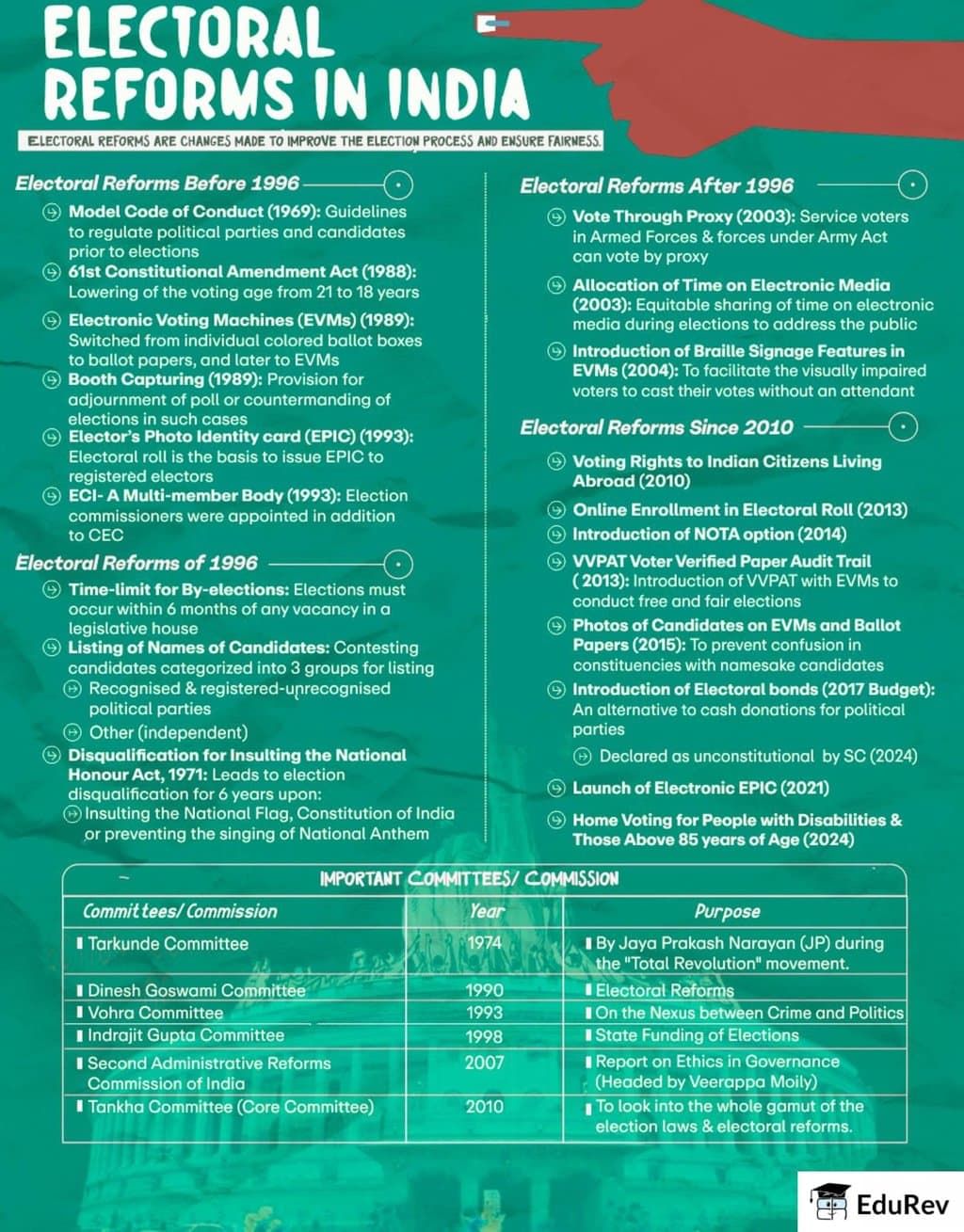UPSC Exam > UPSC Notes > Indian Polity for UPSC CSE > Infographic: Electoral Reforms
Infographic: Electoral Reforms | Indian Polity for UPSC CSE PDF Download

The document Infographic: Electoral Reforms | Indian Polity for UPSC CSE is a part of the UPSC Course Indian Polity for UPSC CSE.
All you need of UPSC at this link: UPSC
|
142 videos|779 docs|202 tests
|
FAQs on Infographic: Electoral Reforms - Indian Polity for UPSC CSE
| 1. What are electoral reforms and why are they necessary in a democratic system? |  |
Ans.Electoral reforms refer to changes and improvements made to the electoral process to enhance its fairness, transparency, and efficiency. They are necessary to ensure free and fair elections, reduce electoral malpractices, and increase public trust in the democratic system. Reforms may address issues like voter registration, election funding, and the conduct of political parties.
| 2. What are some common types of electoral reforms? |  |
Ans.Common types of electoral reforms include the introduction of electronic voting machines, implementing proportional representation systems, establishing independent election commissions, improving the transparency of campaign financing, and enhancing voter education programs. These reforms aim to make the electoral process more accessible and equitable.
| 3. How do electoral reforms impact voter turnout? |  |
Ans.Electoral reforms can significantly impact voter turnout by making the voting process easier and more accessible. For instance, measures such as online voter registration, extended voting hours, and the implementation of mail-in ballots can encourage more people to participate in elections. Higher voter turnout is often seen as a sign of a healthy democracy.
| 4. What role do political parties play in the electoral reform process? |  |
Ans.Political parties play a crucial role in the electoral reform process as they are often the primary stakeholders in elections. They can advocate for reforms that benefit their interests, negotiate changes in electoral laws, and influence public opinion on the need for reforms. Their cooperation is essential for the successful implementation of reforms.
| 5. What challenges are commonly faced in implementing electoral reforms? |  |
Ans.Common challenges in implementing electoral reforms include resistance from established political parties, lack of political will, bureaucratic hurdles, and inadequate public awareness. Additionally, entrenched interests may oppose changes that threaten their power or influence, making it difficult to achieve consensus on necessary reforms.
Related Searches





















